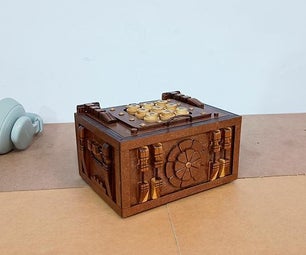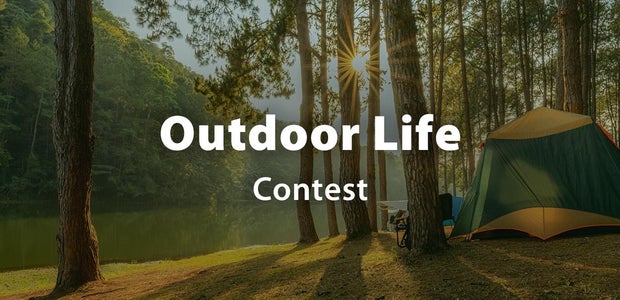Introduction: How to Make an Enjoyable D&D Campaign
If you play D&D, and are the dungeon master, or have been one in the past, you can relate to how hard it is to compose a well structure, and fun, campaign, so as I have been a dungeon master for 4 years (i'm only 12) I thought that it would be helpful if I gave a simple guideline to constructing such a campaign
Step 1: What NOT to Do
The following things are things that make the D&D experience sub-par, and should be avoided
- having the entire slew of quests come from one character, because having to go to one individual for every quest limits the range of quests to an area that is close enough to the character to go to without an encounter(also, may just be my players, but they will get bored and kill him/her, leave, or both).
- having one antagonist chasing around the players the entire time, it's boring, it's stupid, and it's ANNOYING.
Step 2: The Antagonist
aahhh, the antagonist, the hardest(and most rewarding) npc you will ever create in any D&D game. The basic needs for a good antagonist are many, but can be boiled down to these 4 main principles for an antagonist.
#1 fully planed out backround
#2 a reason for being evil
#3 a high social placement in their own evil kingdom(or the large overcasting kingdom of the game)
#4 properly ranked minions
Step 3: Introduction to the Campaign
All good campaigns need good intros, or they will start with an awkward mood, which is not what you want. TRUST ME. The first thing you need to do is get a simple, but normal setting, this will create a welcoming atmosphere, because the player is up against something simple that they can understand, Another important thing is that you introduce little by little the oddities of your world compared to ours, races, animals, names, government system, etc . . .
Step 4: Player's Purpose in the Game
Even though you might think it would be obvious to the player what his goal is, it really isn't, especially for new players, they might not understand what the overall reason for playing the game in the first place is, so it is very important that you always, in any manner, tell the player why they should play.
Step 5: NPCs-how to Generate and Use Them
Npcs are a crucial factor of almost every campaign, mostly because they are usually the givers of the quests in most campaigns, so it is crucial that the npcs are developed enough to be able to take on a short conversation with emotional accuracy at least, at best, the npc must be able to have a stable long relationship with the player/s while having a consistent personality, and also be able to change due to events during the story, instead of having pre-writen scripts for the npcs, have a sheet for each one, listing and classifying the personality traits of the character, so that they are adaptable to multiple conversations, also having a unique accent to each npcs voice makes the character feel more alive.
Step 6: Geography #1 the World
The geography of your campaign world is very important, so, you have to make a map. Please note that not all campaigns have to be on a large scale world, you could easily skip to step 8 and create a small world for your players, or you could take the approach of starting with the starting area, and build the world out from that, so you are not limited to the order of these instructions. First thing you need to do is understand what your players will be doing, and shape the world around that, for example; if you are leading the players along a strait path, then the land area in your world would be mostly in the shape of that line (if a little thicker), and so forth. Once you have the outline of your map, your done!, I will publish an instructable on making good looking maps, but don't let me be your only source, look up multiple tutorials, read books on mapmaking and look at some real maps.
Step 7: Geography #2 the Continents
On the continents, you should focus on mapping regions,rivers,large cities and mountain ranges, other then that, do the same thing for your continents as you did for the world (last step).
Step 8: Geography #3 States
for the states, do the same as for the world and continent maps, but map every river, area, city, town, and mountain (not the entire range).
Step 9: Geography #4 Cities
Now this map and the next one are very different from the steps before, so hang on, the city and area/town maps should be mapping out the important buildings of the area, and also showing the streams,sewer entrances, secret hideout locations (for DM only), the homes of people that will be important to the story, and all shops and taverns.
Step 10: Geography #5 Towns/areas
the same applies to these maps as to the city maps, but on these don't forget to include every building. (the picture is that of what a map you are giving to your player should look like),also for the players, you must not forget that they can also (with some skill), map out their area.
Step 11: Government
The government system is one of the most complicated things of any campaign world, from stocks, to time period you may be working on a government system for your world for years, writing all the laws, amount of enforcement pushed upon the people, etc, But some campaigns don't even need a government system for their function, so overall, if this is your first time creating a campaign, then I suggest that you simply copy an existing system(unless you got a lot of time on your hands).
Step 12: NAMES
Names are one of the most defining characteristics of any thing, whether alive or not, the name can change the way the players look at the character, completely changing the gaming experience, so it is crucial that you choose names wisely, for the entire function of your campaign is balanced upon the proper naming of everything, to know what name is the best to suite the thing in mention, you must first gather everything you know about that thing, and follow this flow chart to determine what type of name you should give it, and after that, just find a name that suites the needed purpose, also the names of well known people can help the player/s understand the things personality, before even beginning to develop a relationship.

Participated in the
First Time Author







